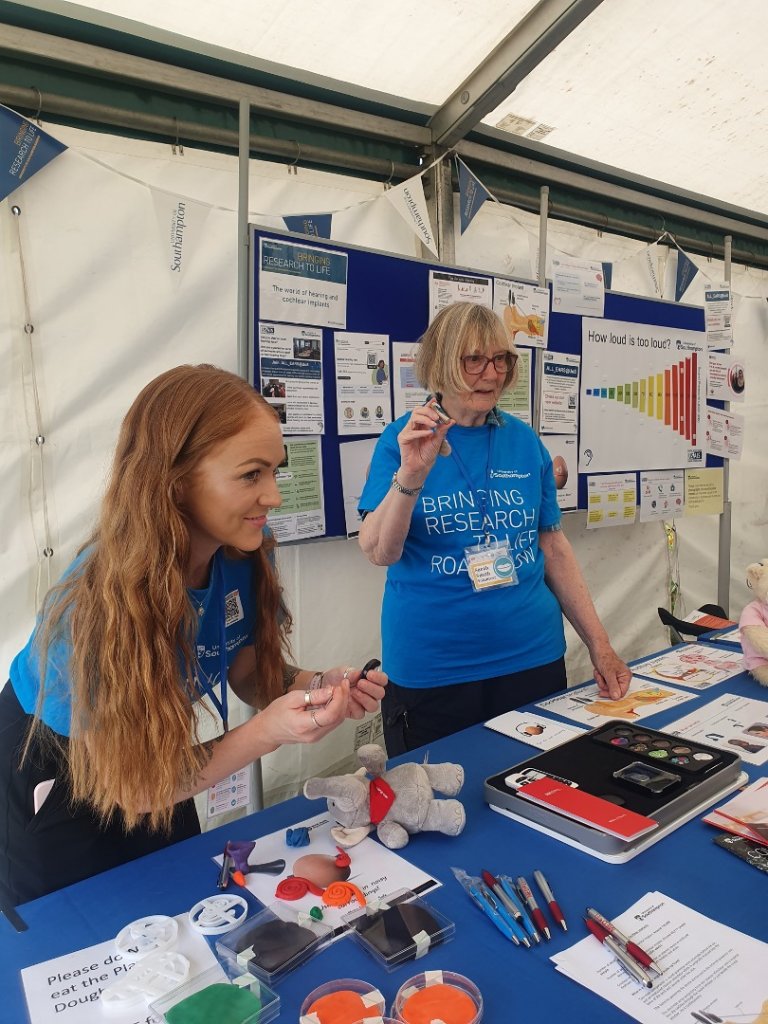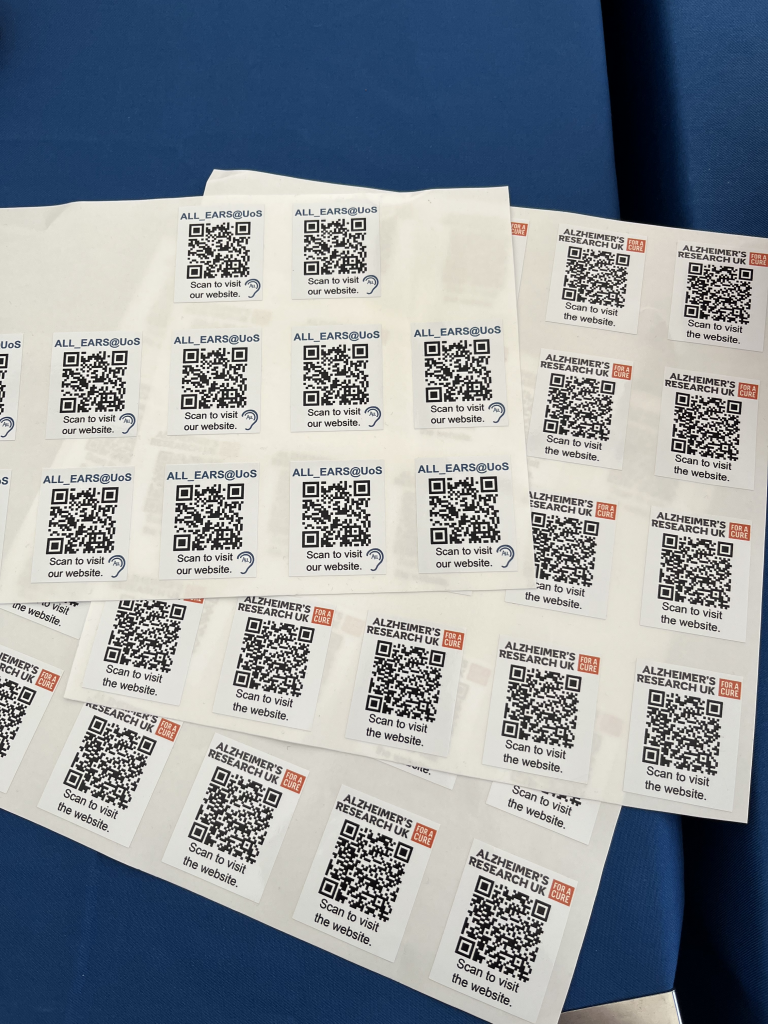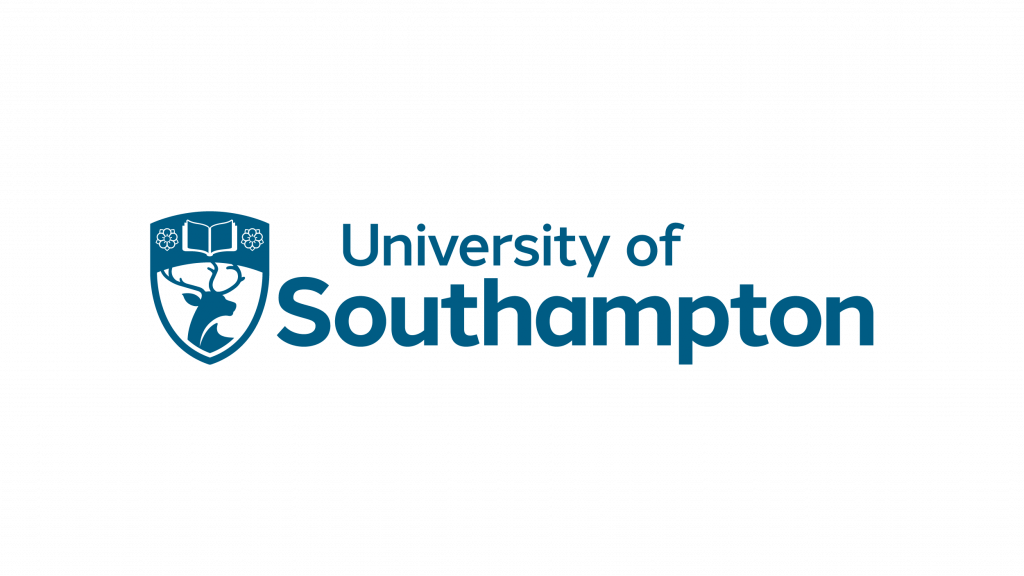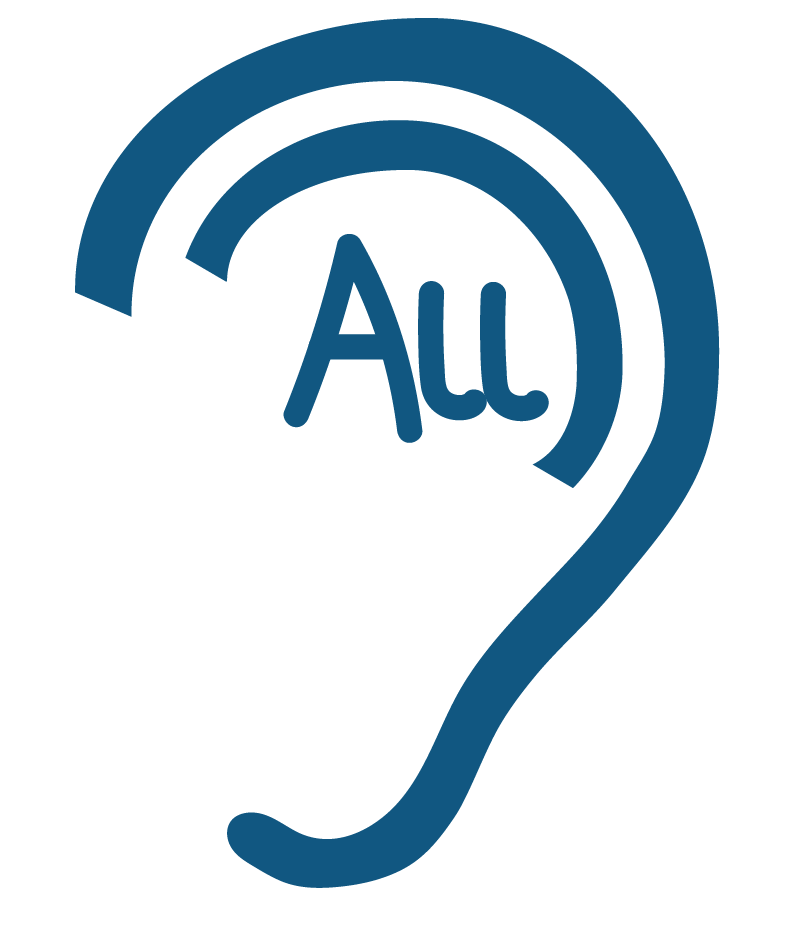What have we been up to so far?
Our meetings:
Meeting 1: Tuesday 3rd May 2022 Our first meeting included a warm welcome and introduction to the group. Patient and public involvement experts (Heather and Barney) gave a brief insight into the value of people sharing their lived experiences to help shape research and, in this case, to improve outcomes for people with a cochlear implant. We then took some time to find out a bit about each member of the group. We learnt about the group’s experiences with cochlear implants and their motivations for joining the group. The final part of the meeting involved Kate presenting a piece of research she has been involved with which was about how cells in the cochlea behave after cochlear implantation. The group members asked questions about the research and possible future directions.
Meeting 2: Wednesday 22nd June 2022 The second meeting was held in a more spacious room, and we had a notetaker present. At the start of the meeting, we discussed the feedback from the first meeting and how the feedback had been implemented. Kate then spent some time discussing the comments and feedback she had received on her research study documents and highlighted the changes that had been made as a result of the feedback. We went on to discuss the different potential roles of the group and the differing levels of involvement including consultation, collaboration, and engagement. In the second half of the meeting, the group had the opportunity to find out about the several research projects we are currently working on. Small group discussions about each project took place then we came together as a group and shared our thoughts on the different projects. What projects did the group find particularly interesting and why? We finished the meeting by highlighting some points we would like to discuss in the next meeting which included how could we widen the group membership, how will be know if the group is successful and what could our group name be?
Meeting 3: Friday 23rd September 2022 We had two main objectives of the meeting which were to have group discussions to find out about how everyone first found out about cochlear implants and the early stages of deciding to go for a cochlear implant. Secondly, to have discussions about the group’s ethos and to collectively draw together a short paragraph which describes the aims and goals of the group. Everyone shared their experiences of how they first found out about a cochlear implant and their referral process. We then discussed a paragraph, written by our group member Sarah Smith, which described what our group is all about. As a group, we edited the paragraph to improve it. By doing this, we discussed the groups ethos, purpose, aims and goals. Key words which came up included: partnership, friendly, inclusive, lived experiences. The meeting was filled with lots of great discussion and sharing of ideas.

Meeting 4: Wednesday 23rd November 2022 This meeting was held at Winchester Science Centre which was very exciting. We heard all about the centre and the Love your ears exhibition from Jo, the director of experiences. We had time to explore and try out the different exhibitions. We then met back in a classroom for refreshments and to discuss how the centre as a whole and more specifically, the Love your ears exhibition could be improved. The group had many great ideas which Jo and her team could take away, discuss, and hopefully improve the exhibition. We then discussed updates for some ongoing projects including the successful funding of the community engagement project and the progress with the Just like me project. In the last part of the meeting, we discussed what we plan to cover in our next meeting and reminding the group about the process of claiming for expenses. We really enjoyed visiting the centre and providing useful feedback to Jo and her team.
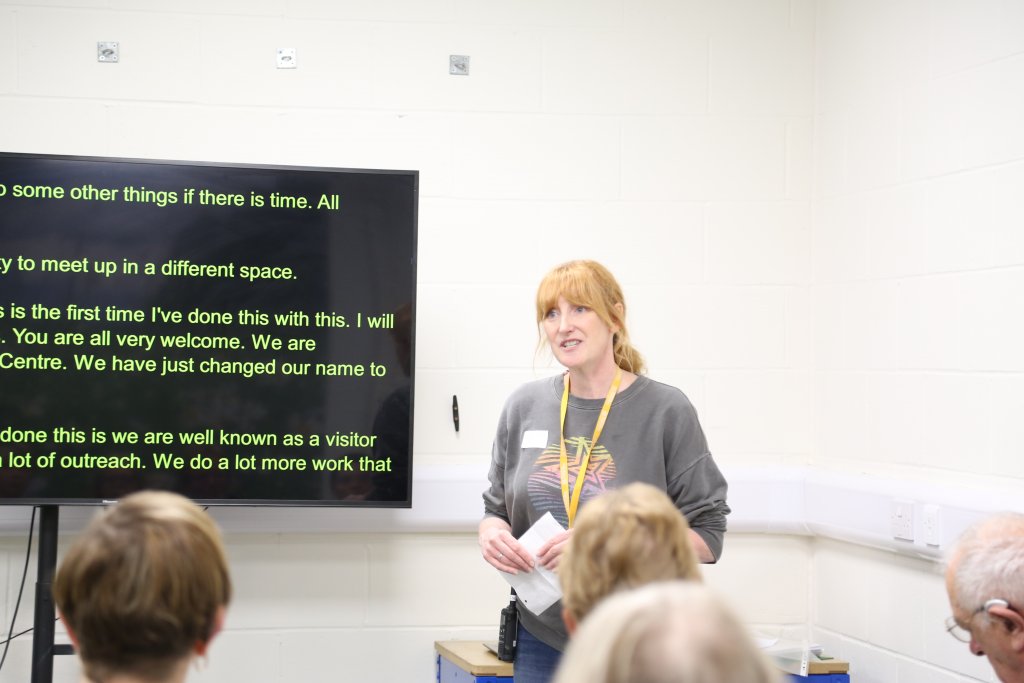
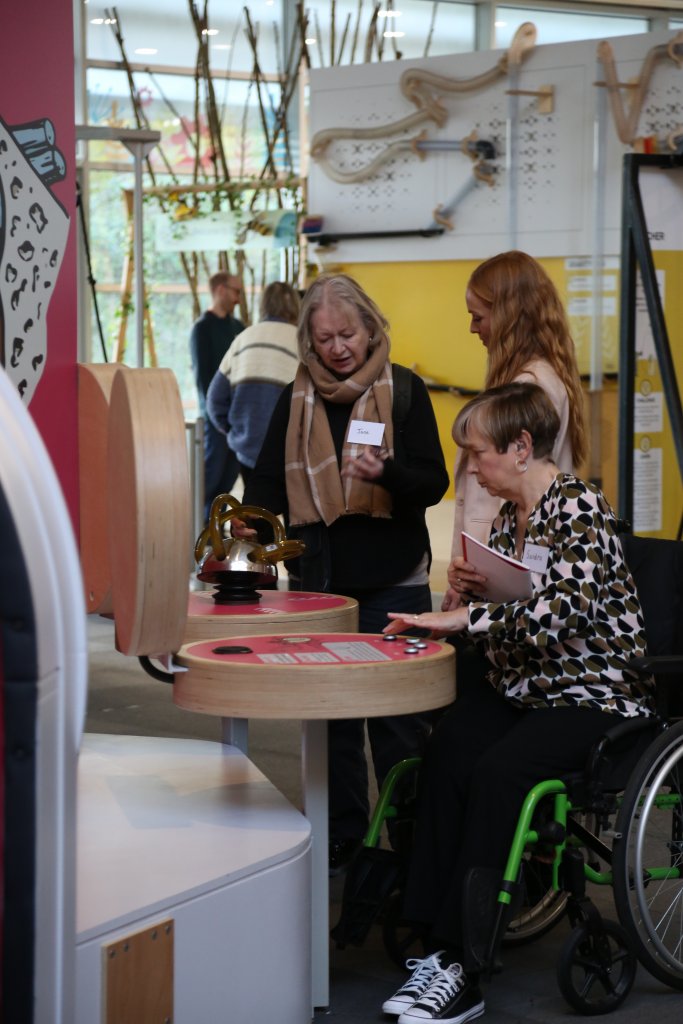

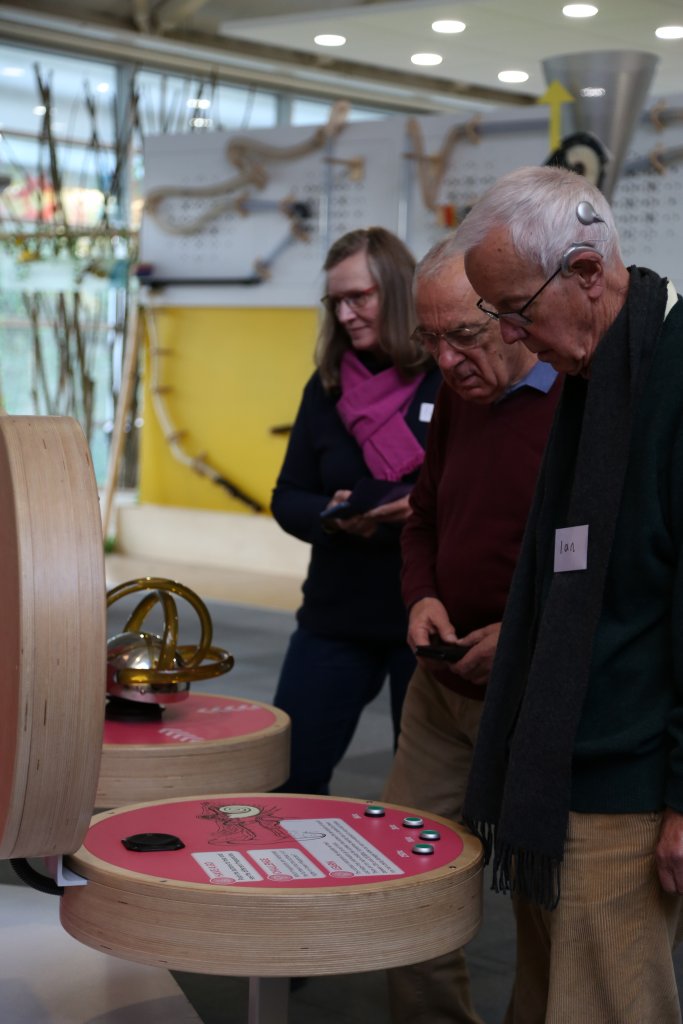
Meeting 5: Friday 6th January 2023 We started the meeting by welcoming our existing and new members to the group. We went round the table, and everyone introduced themselves and told the group a bit about their background. Kate introduced the two main objectives of the meeting which were to provide information about, and discuss the research process, including the research cycle, writing a research bid and applying for ethical approval. Also, to discuss upcoming or ongoing research projects and ways to get involved. To start, Kate gave some information about the research cycle and the different elements we must consider when thinking about writing a research bid. We got into groups and discussed a set of statements on cards which highlight the type of things researchers must think about when writing a research bid. The groups were asked to look at the cards and think about how they think they might decide on the order, the timing, who do they need to speak to regarding different aspects of the project and how would they do this whilst juggling other responsibilities/projects – when writing a research bid. We came back together as a big group and shared our ideas and thoughts using the whiteboard. Kate explained that when writing a research bid, there is an ‘dream/ideal’ situation whereby you get an idea, apply for funding, you are awarded funding then you can do the science. However, the reality is often more complex. We discussed the complexities and the variety of different things we must consider and added them to a mind map. We then went through and highlighted areas where we can integrate patient and public involvement (PPI).
In the second part of the meeting, we discussed some of the ongoing and upcoming projects. Alisha, a fourth-year medical student in our lab group talked about her project exploring the barriers to cochlear implantation. Alisha discussed how she plans to run focus groups and would like to recruit people from the group. Kate briefly talked about her ongoing community engagement project called ‘SO-Together Health: Working together within Southampton for better hearing and brain health’. We discussed how important it is to go into the community and meet people who wouldn’t necessarily join deaf or hard of hearing groups. We discussed brain health and the link to hearing health and the importance of raising awareness about these links. Kate would like to form a small steering group to discuss ideas about activities and information that we could take into the community for this project. Please let Kate know if you would like to get involved. The final discussion of the meeting was about the lack of awareness of GPs and NHS practitioners around hearing health and deaf awareness. We will add this topic to a future meeting of further discussion as it was something many members of the group felt very strongly about. Just before closing the session, Kate gave a few mentions about the Terms of reference document and the upcoming website.
Meeting 6: Wednesday 10th May 2023 We welcomed new members to the group. Kate started by outlining the purpose of our group and what patient and public involvement and engagement (PPIE) is. We then went round the table, and everyone introduced themselves and told the group a bit about their background and how they found themselves at our group meeting. Kate introduced the main objectives of the meeting which were to hear from Helen Cullington and Sarah Smith about their research proposal/ideas and discuss these. Also, to briefly discuss the research process and other opportunities for involvement. Helen told the group about the research project she is involved with called BEARS which is a project aimed to use virtual reality games to help children hear better with two cochlear implants. Part of this work, Helen and her colleagues are interested in improving inclusivity within clinical trials. We had a group discussion about the barriers to getting involved in research. This included things like travel, family responsibilities, fear of failure, lack of trust in researchers/healthcare and lack of access to information for minority ethnic groups.
Next Sarah Smith, a member of ALL_EARS discussed a research project she came up with which aims to improve the support for cochlear implant aftercare through running informal, coffee mornings in the community with a hearing therapist, technical specialist and other CI users present. The group discussed ideas for how this could be done and why this is important. This is important because some people find remote care or telemedicine challenging and therefore would benefit from a more hands-on approach. Tracey gave a brief overview about the research process and the different things us as researchers must think about when planning a research project. An important element of this is the identifying and prioritising ideas stage which relies heavily upon the involvement of members of the group to share their ideas and unique knowledge and lived experience with us.
Alisha, a medical student working with us, gave an overview of the project she has been working on to evaluate the barriers and facilitators to cochlear implantation in older adults. Alisha will be conducting some semi-structured interviews to gather more information for this project. Finally, Kate gave some brief mentions of various other projects and things to highlight – such as pointing out our group website and the jam board which we plan to use to share ideas. Kate reminded the group of the evaluation questionnaire to complete by 17th May. And also highlighted to the group about the community project and that Kate will be visiting different community groups over the next few months to run activities, if any members of ALL_EARS would like to join her at any.

Meeting 7: Tuesday 11th July 2023 We started the meeting by welcoming all members. Kate briefly reminded the group of the purpose of our group and what patient and public involvement and engagement (PPIE) is. Our new members introduced themselves. Next, we got into small groups around the room and all groups were given a quiz to complete. The quiz was made up of some general knowledge questions and some questions about hearing and brain health. Once everyone had the chance to complete the quiz, Kate went through and read out the answer to each question. A few questions initiated some interesting discussion such as about hearing aid use and why there is a stigma and what are the modifiable risk factors for dementia. Congratulations to our winning group!
After a short refreshment break, Tracey presented a new project called ‘Have you heard? Cochlear implants work in older people’ which we are in the early, development stages for. The study design and project idea were discussed with the group, and we noted down valuable feedback and comments. It was highlighted that it is important to raise awareness of how people qualify for a cochlear implant – people need to understand the eligibility criteria. Another point was that people need to better understand the biology of our hearing, that when you lose most of your hair cells in the cochlea, hearing aids will no longer provide benefit and therefore a cochlear implant may be suitable. Next, Kate briefly discussed the ongoing Evaluation of the group. The aim of the evaluation questionnaire was to evaluate the impact, effectiveness, and engagement of the PPIE group using the National Standards for Public Involvement. The questionnaire was co-designed with members of the group – the questionnaire went live – the data were analysed and interpreted – next steps are to disseminate findings and build action plan for the next 18 months. Kate gave an overview of the findings from the questionnaire. A handout with a summary of the rest of the data was provided. Kate will continue to work on writing up the evaluation and will share with members of the group as the piece develops.

Meeting 8: Monday 18th September 2023
We started the meeting by welcoming our existing and new members to the group. New member Joan introduced herself to group. The objectives of the meeting were to:
- Discuss the importance and value of community engagement in raising awareness, building knowledge and informing behaviour change.
- Discuss our aims of raising awareness of better hearing and brain health and getting involved with research, in our local community, alongside our PPIE group members and discuss ideas for how we could do this.
- Discuss an upcoming research project titled: CHIEF Study – Cochlear implants and inner ear inflammation.
Kate started the first activity – ‘How can we get the message out?’ – which was all about how we can use community engagement to get key messages about hearing health out into the community. Kate gave a brief overview of what community engagement is, the value of it and then went on to discuss the community engagement work she has been doing over the last year.
After a brief introduction into the community engagement projects, we went into small groups for discussions. Each group were asked to discuss one (or all) of the four questions listed below:
- What information and resources are lacking in the community?
- How can we get the information out there?
- How can we get the information to a diverse and broad group of people?
- How can we work together to get the information out there?
The group came up with lots of great ideas for how we can ger the message out there. The second half of the meeting we discussed an upcoming study the CHIEF (Cochlear implantation and inner ear inflammation) study. Kate asked for any feedback on the project from the group and we discussed the importance of members of the public reviewing project documents before they are used in studies.
Finally, Ella, a third-year medical student, then gave a brief overview of her upcoming project where she will investigate barriers to hearing aid use in people living with dementia or cognitive impairment. Ella explained how the project will run and asked if members of the group would be happy to share the advert of the study.
Meeting 9: Thursday 30th November 2023
To start the meeting, everyone briefly introduced themselves and we welcomed new members – Sandy and Roger. Sarah then gave a summary of who we are and what we have been doing together over the last 18+ months.
Kate briefly went through the meeting objectives which were:
- Discuss the six National Standards for Patient and Public Involvement and what they mean to us.
- Discuss the challenges people face in interacting with health services.
- Discuss new or upcoming projects.

The aim of the first activity was to discuss and rank the six national standards for patient and public involvement. Kate explained that the evaluation of the group that look place in May was based around these six standards, and that it is important that we are transparent with the group about the standards we are working to achieve. We got into small groups and each group had a pack of statements related to the standards. The groups discussed the statements and which ones they thought were more important than others. This turned out to be a challenging task but created great discussion! The consensus was that all of the standards are linked and that they are all as important as each other. In the second part of the meeting, Heather Parson’s (PPI professional) talked to the group about a project she is involved with called Liver Health – Peer Support Research Study. Heather asked to the group about their experiences of accessing health services and what ideas they had for how this could be improved. Finally, Callum, an ENT surgery trainee who works at SGH and is involved with research in our group, introduced himself to the group and talked to the group about some of the research areas he is interested in.
Meeting 10: Thursday 1st February 2024 We started the meeting by welcoming our existing and new members to the group. New members Deborah, David, John and Aida introduced themselves. Kate started with giving some updates since the last meeting which included a new publication and a preprint about the PPIE evaluation. The first activity was to discuss the question in groups: Is there a need to get a picture of severity of hearing loss in South of England? How big is the problem? After a lively discussion, we all shared our ideas to the whole group. Callum then gave a short presentation about this project called AudiLOG which aims to create a comprehensive research database at AIS. To end the meeting, Kate highlighted upcoming opportunities to get involved with including the annual Science and Engineering Festival (Saturday 16th March).
Other activities:

Workshop and Presentation
Kate (researcher) and Chris (group member) attended a workshop titled: Working together: A training workshop on participatory and co-produced research, organised the Faculty of Medicine. Kate and Chris gave a presentation about the work they/we have been doing to set up an active and enduring patient and public involvement group for people with lived experience of cochlear implants. The presentation focused on how the researchers and public members connected with each other and have begun to build relationships within Southampton.
Presentation title: ‘That is amazing, you put that thing on and you’re not deaf!’ Comment from Chris’ barber after he put his CI back on after a haircut. Developing a long-term partnership between researchers and patients to enable lived experience to inform the research process and priorities.
Following the workshop, Chris was invited to write a blog about his perspective on patient-informed research which included some comments on the topic from Kate’s perspective. The link for the blog and the footage from the workshop can be found here here.

We have submitted an article to the British Cochlear Implant Group (BCIG) Annual Newsletter. The piece is about the development of our group which includes why we set up the group, what our aims and goals are, what we have got up to so far and what our future plans are. Please click on this link to view the newsletter containing the article.
A cartoon made by Daisy Price based off of a quote described in the article.
Science and Engineering Festival 2023: Saturday 18th March
Several members of ALL_EARS volunteered their time to run our exhibit about hearing and cochlear implants.
https://www.sotsef.co.uk/SED/whats-on/?id=86
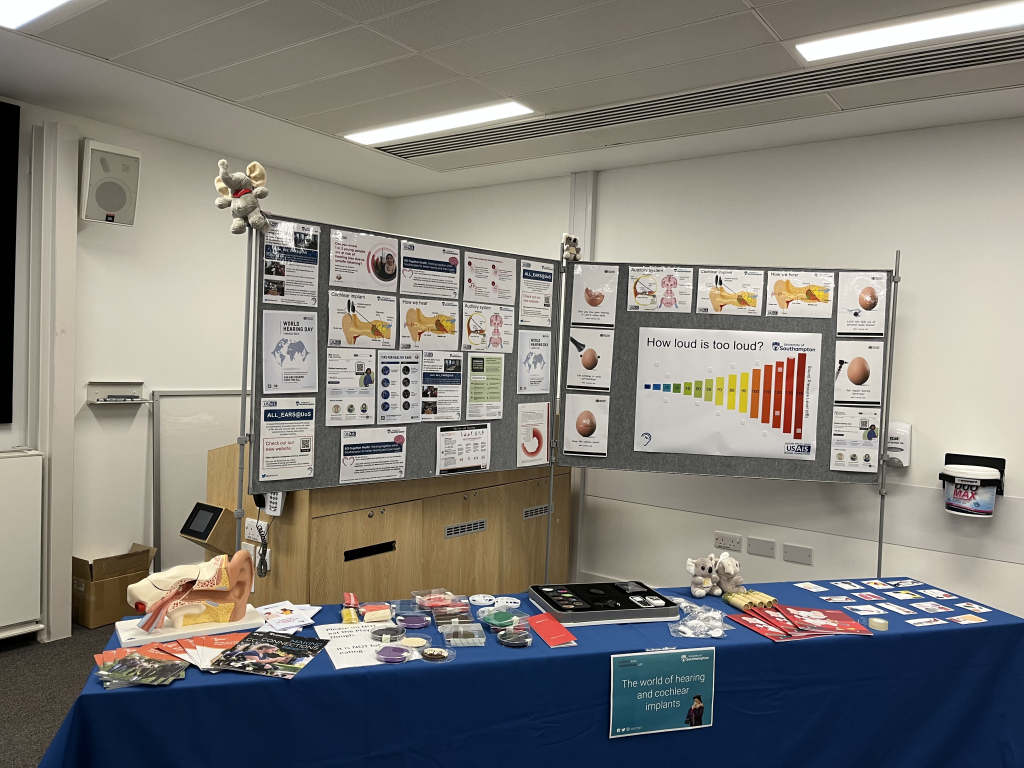

We had some great freebies for the kids provided by Cochlear.
Koala’s with a dummy cochlear implant!
We had a cochlear implant kit from MEDEL to show visitors the different part of a cochlear implant.



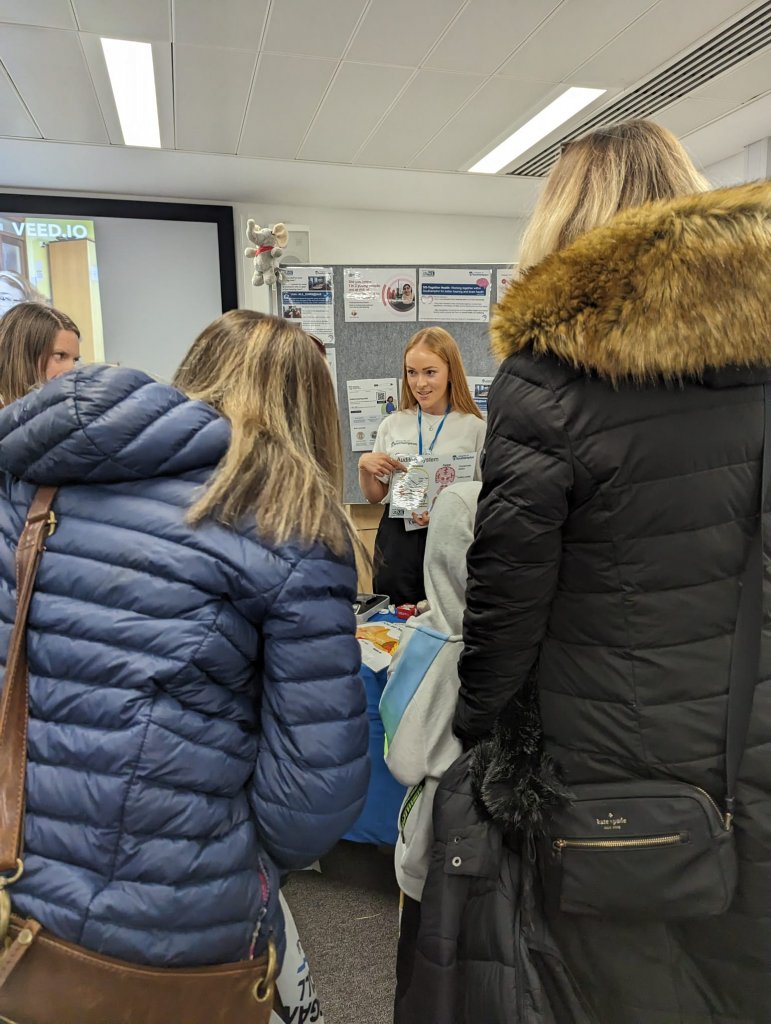

Kate did a presentation at the British Cochlear Implant Group Annual Conference in Cambridge (13th – 14th April 2023) about how we have established this PPIE group and what we have achieved so far. The title of the talk was ‘Patient and public involvement and engagement: How valuable and how hard?‘
Sarah Knott, Patient and Public Involvement Manager for University Hospital Southampton recently ran a workshop whereby the aim was to explore our group member’s experiences of living with hearing impairment using their own photos as prompts for creative writing. Anne, Ian and Kate took part. In the workshop, we all discussed what the pictures we had chosen meant to us and Sarah helped us come up with short sentences or phrases so go beneath the photos.
Here is a photo of the display at the annual ARC research event ‘Addressing health inequalities through research and innovation‘ at the Ageas Bowl on Tuesday 20th June.

Sarah Knott, Patient and Public Involvement Manager for University Hospital Southampton recently ran a workshop whereby the aim was to explore our group member’s experiences of living with hearing impairment using their own photos as prompts for creative writing. Anne, Ian and Kate took part. In the workshop, we all discussed what the pictures we had chosen meant to us and Sarah helped us come up with short sentences or phrases so go beneath the photos.
Here is a photo of the display at the annual ARC research event ‘Addressing health inequalities through research and innovation‘ at the Ageas Bowl on Tuesday 20th June.


An exhibit at the New Forest and Hampshire County Show
Tuesday 25th July 2023
We had an exhibit called ‘The world of hearing and cochlear implants’ in the Wessex Medical Research tent at the New Forest Show. Alongside researchers Kate and Tracey, three members of ALL_EARS@UoS volunteered their time to talk to members of the public about their experience and knowledge of hearing and cochlear implants.


Sarah playing the ‘How loud is too loud?’ game with a young visitor.
In our interactive poster game, people have to decide how loud different sounds are .. from a ticking watch to a rock concert and jet engine.
Carol and Chris explaining how a cochlear implant works.


